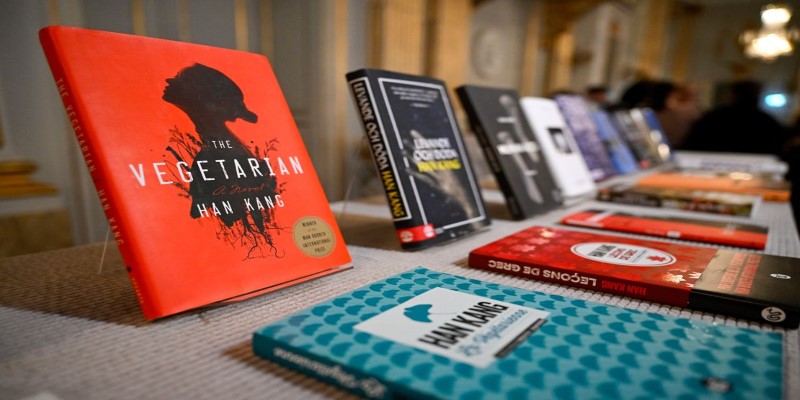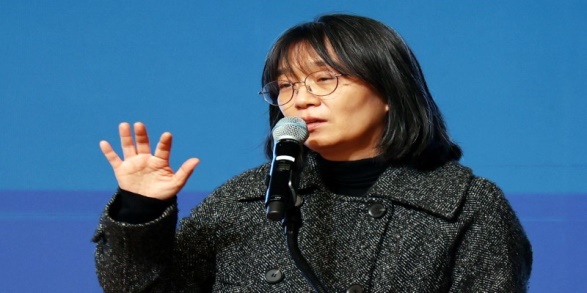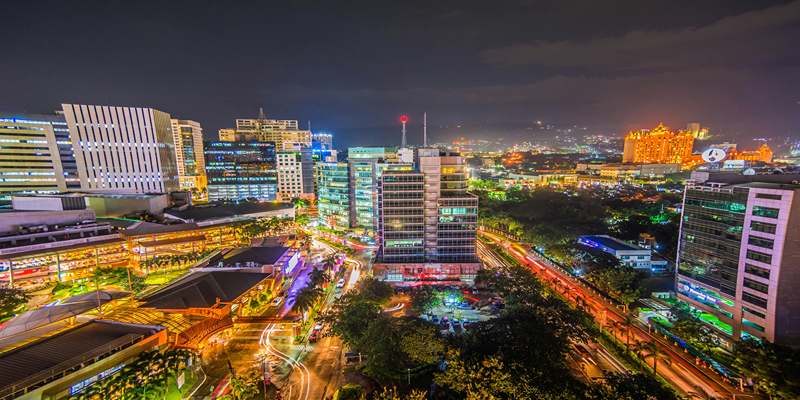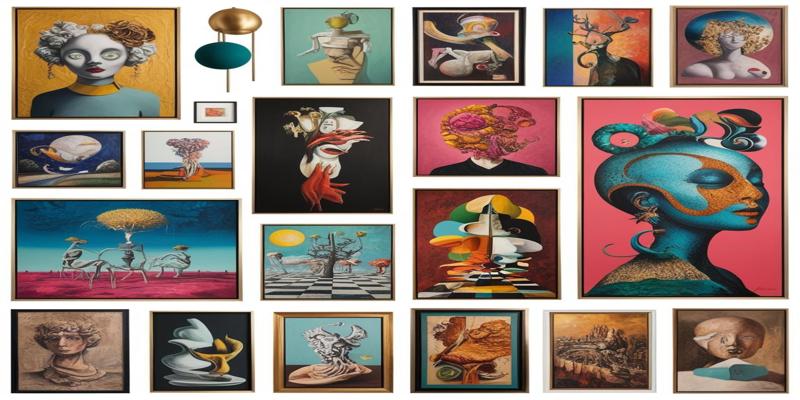In an extraordinary moment for global literature, South Korean author Han Kang was awarded the 2024 Nobel Prize in Literature, marking a significant milestone not only in her career but also in the history of South Korean literature. The Nobel Committees recognition of Han Kang for her "intense poetic prose that confronts historical traumas and reveals the fragility of human life" underscores the emotional depth and profound intensity that define her literary work. With this recognition, Han becomes the first South Korean writer and only the third Asian woman to receive the Nobel Prize in Literature, joining a select group of trailblazing authors whose work transcends national boundaries to touch on universal themes of human suffering and resilience.
Han Kang's literary career has continuously ventured into the realms of trauma, grief, and personal transformation. Han Kang was born in 1970 in Gwangju, South Korea, and grew up surrounded by literature. Her father, Han Seung-won, a respected novelist, played a pivotal role in shaping her literary upbringing. Her hometown, Gwangju, is etched deeply in South Koreas modern history due to the 1980 Gwangju Uprising, where hundreds of civilians were killed during a military crackdown.
Although her family left Gwangju months before the massacre, the event shaped much of her worldview and later works. This early exposure to her countrys turbulent history provided Han with an understanding of both personal and collective trauma that would heavily influence her writing.
Hans work is notable for its fearless exploration of difficult topics like mental illness, societal expectations, and the human capacity for both cruelty and compassion. Her breakthrough novel The Vegetarian propelled her to international fame when it won the 2016 Man Booker International Prize. In this novel, she tells the story of Yeong-hye, a woman who rebels against societal norms by refusing to eat meat, a decision that sends her into a psychological tailspin.
The Vegetarian is a disturbing but mesmerizing meditation on human desire, control, and personal agency. The novels blend of surrealism and brutal realism was praised for its unique narrative voice and thematic depth, ensuring Hans place as a significant voice in contemporary literature.

One of the most defining aspects of Han Kangs work is her focus on historical trauma, a theme vividly brought to life in Human Acts. This novel, which deals with the Gwangju Uprising, reflects the deep scars left on South Korean society by this tragic event. In Human Acts, Han delves into the lives of individuals affected by the massacre, capturing their feelings of guilt, anger, and unresolved grief. By giving a voice to these often-forgotten victims, Han paints a poignant portrait of a society still struggling to come to terms with its violent past.
This exploration of historical trauma is not limited to just the events of the Gwangju Uprising. Han Kang has shown a deep commitment to examining the ways in which collective and individual suffering intersect. Her work often explores how the trauma of a single person can reflect the broader, more profound pain of a community or nation. This is especially true in The White Book, a deeply personal exploration of grief and loss, which reflects on her own familys experience of losing a child at birth. By confronting such personal pain within the context of broader historical and cultural trauma, Han Kangs work challenges readers to consider the ways in which personal loss can become a reflection of societal suffering.
A key element of Han Kangs literary style is her mastery of language, which she has often described as a double-edged swordcapable of both beauty and cruelty. This approach is evident in her sparse yet poetic prose, which conveys profound emotional truths without unnecessary embellishment. The Nobel Committees praise for her "poetic prose" is a fitting description of Hans ability to use language to reveal the raw, often painful realities of human existence. Her writing is deeply lyrical, yet it carries an emotional intensity that leaves a lasting impact on readers.
In various interviews, Han has discussed her complex relationship with language, particularly how it can both empower and constrain. She has remarked that her process of writing often feels like a struggle to give voice to the unspeakablewhether it be the unspeakable horrors of history or the silent struggles of individuals living within oppressive societal structures. This tension is particularly evident in works like The Vegetarian, where the protagonists refusal to speak becomes a powerful act of defiance, as well as a reflection of the limitations of language itself in expressing internal conflict.

Han Kangs 2024 Nobel Prize in Literature has cemented her status as a global literary icon, placing her among the ranks of authors such as Ernest Hemingway, Gabriel Garca Mrquez, and Toni Morrison. However, her achievement holds particular significance for South Korean literature, which, despite its richness, has often been overlooked on the international stage. By honoring Han, the Nobel Committee has shone a spotlight on South Koreas literary traditions and the unique ways in which its writers grapple with themes of history, identity, and survival.
Her win also highlights the increasing recognition of Asian women in the literary world. Following in the footsteps of past Nobel laureates like Gao Xingjian and Mo Yan, Han brings a distinctly feminist perspective to her work, often focusing on the experiences of women in a patriarchal society. Through characters like Yeong-hye in The Vegetarian or the unnamed narrator of The White Book, Han explores the ways in which womens bodies and minds are policed, controlled, and ultimately liberated through acts of rebellion, whether these acts are violent, silent, or deeply personal.
Han Kangs 2024 Nobel Prize is a testament to the power of literature to engage with the most difficult aspects of human life. Through her poetic prose, Han has opened up new ways of understanding historical trauma, personal suffering, and the fragile nature of human existence. Her win not only solidifies her place as one of the most important writers of her generation but also highlights the enduring relevance of literature in a world that continues to grapple with its past and present. As Han Kang continues to write, her work will undoubtedly shape the literary landscape and challenge readers to confront the uncomfortable truths of human existence.

By Gabrielle Bennett /May 27, 2025

By Pamela Andrew/Nov 08, 2024

By Christin Shatzman/Apr 28, 2025

By Susan Kelly/Apr 30, 2024

By Noah Jones/Apr 28, 2025

By Noah Jones/Nov 13, 2024

By Peter Evans/Apr 12, 2024

By Eleanor/Feb 21, 2024

By Frederica/May 03, 2024

By Kristina Cappetta/Apr 28, 2025

By Eleanor/Dec 02, 2024

By Triston Martin/Apr 08, 2024